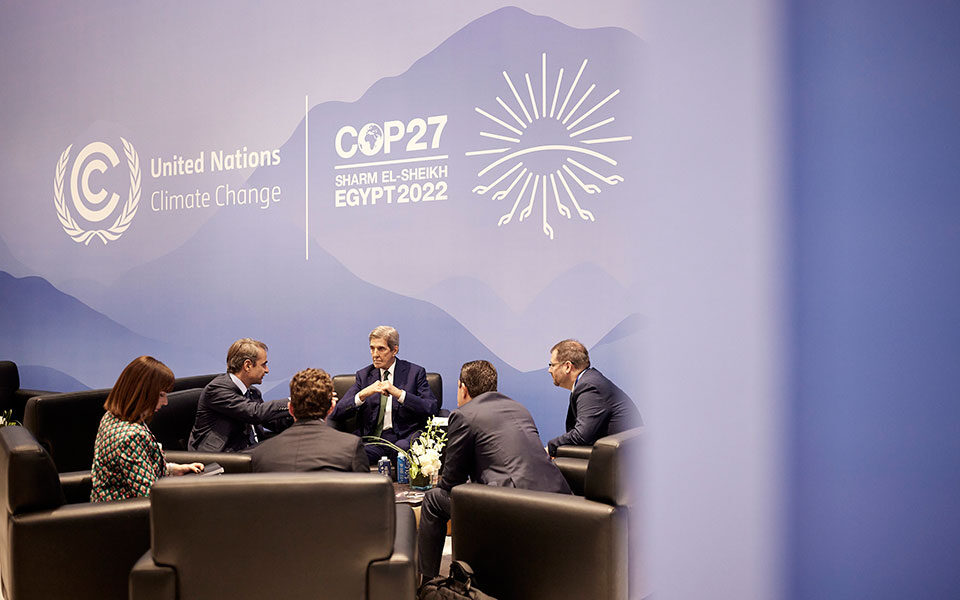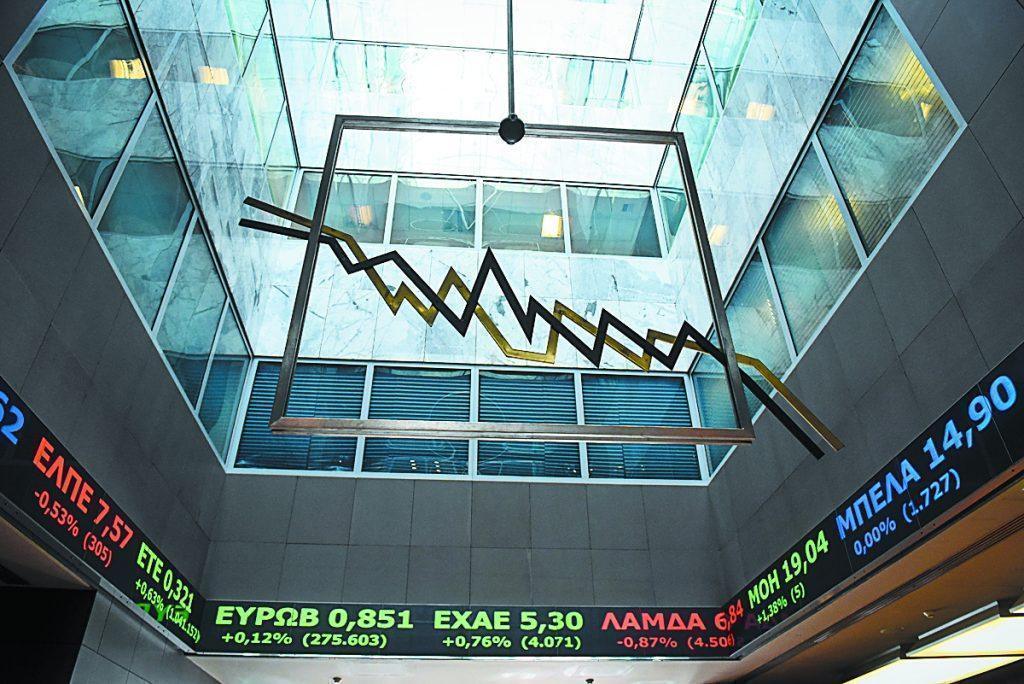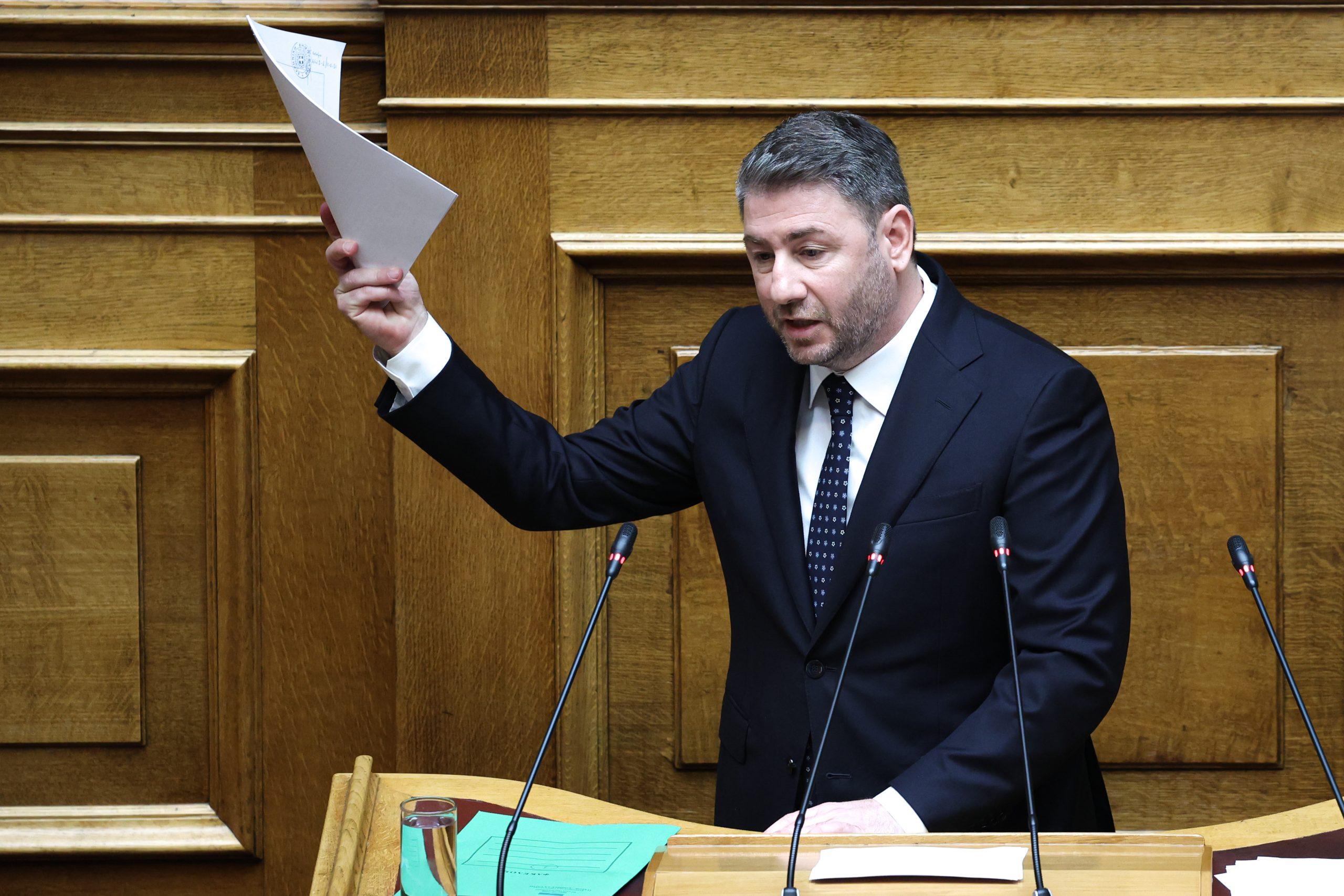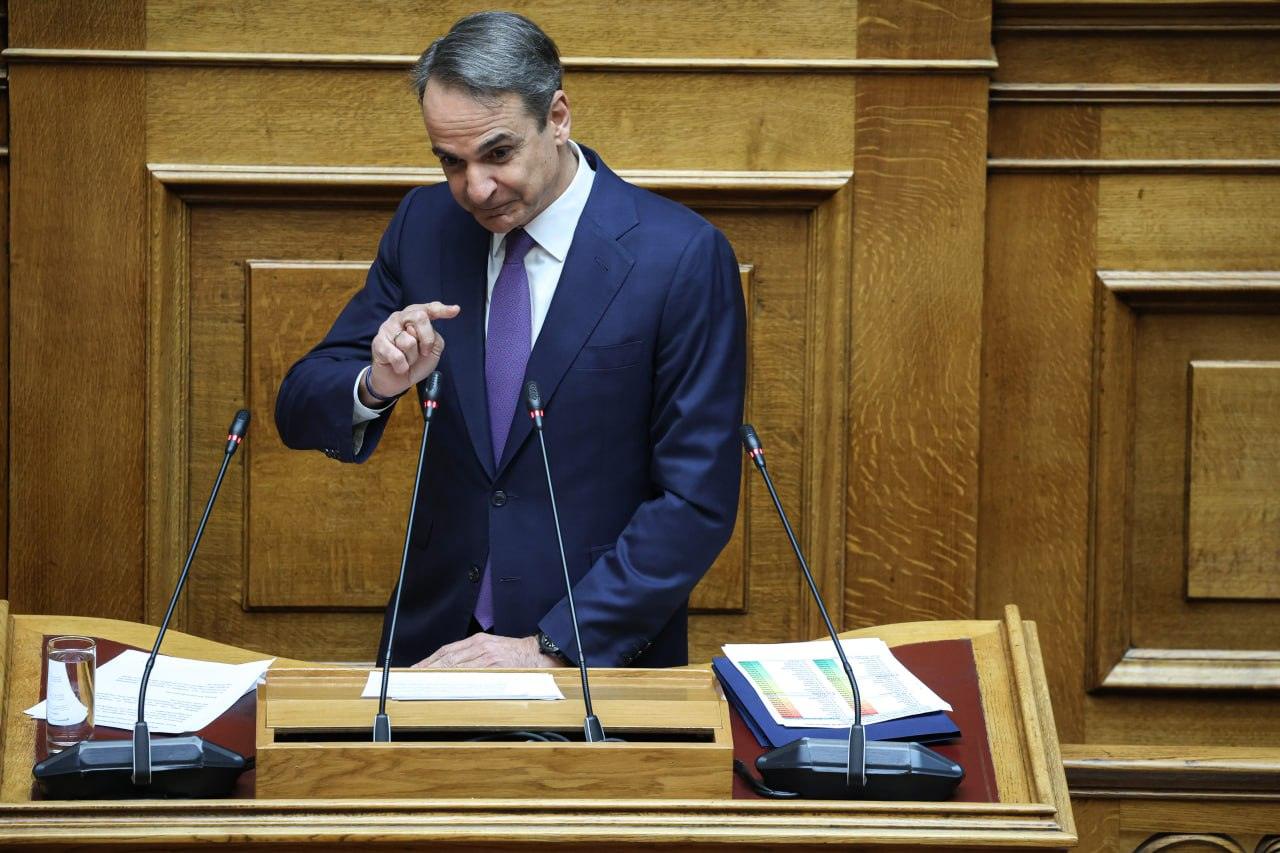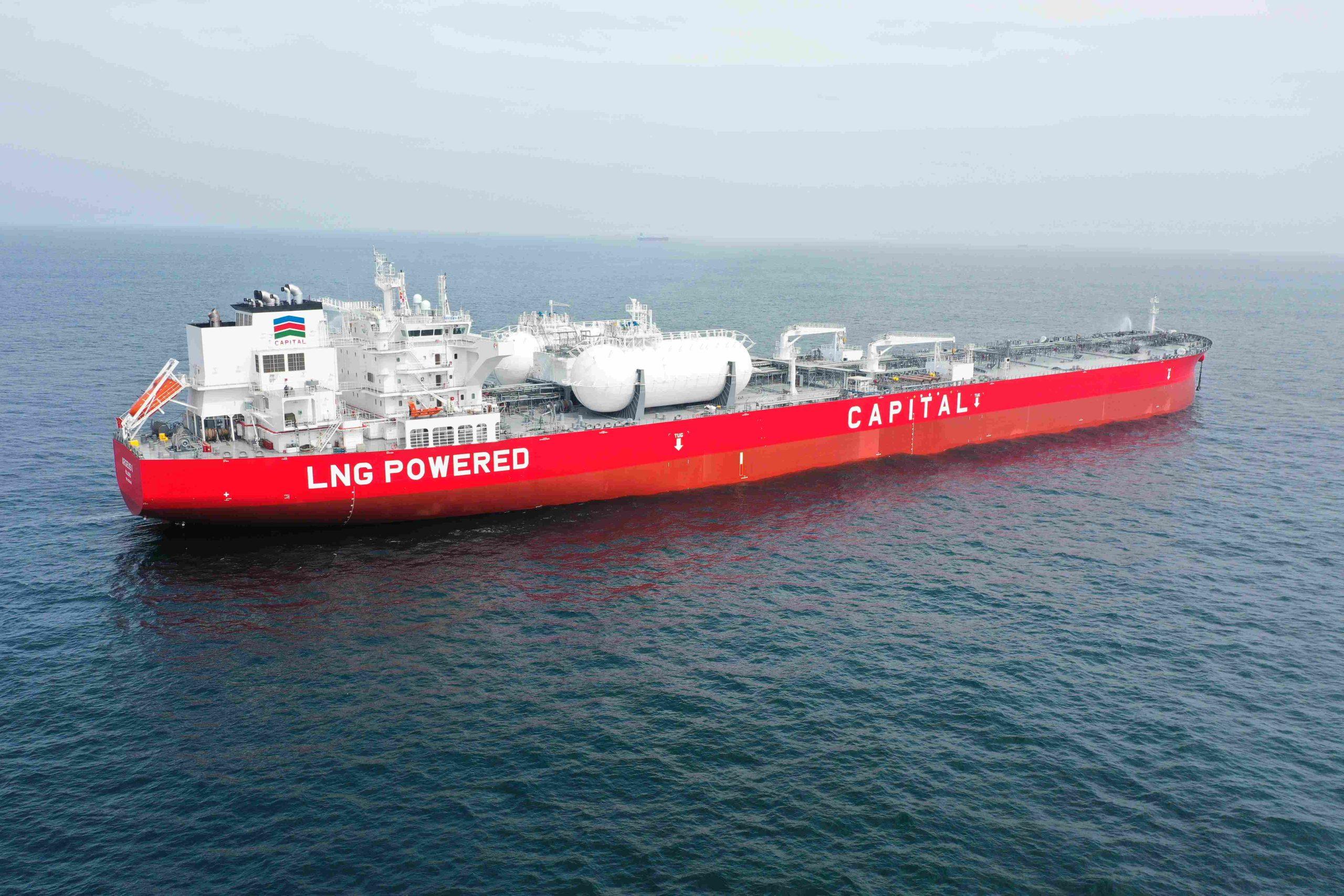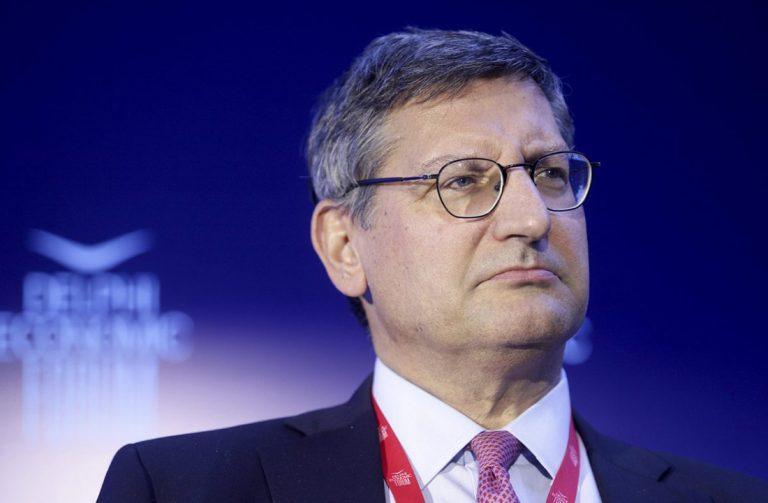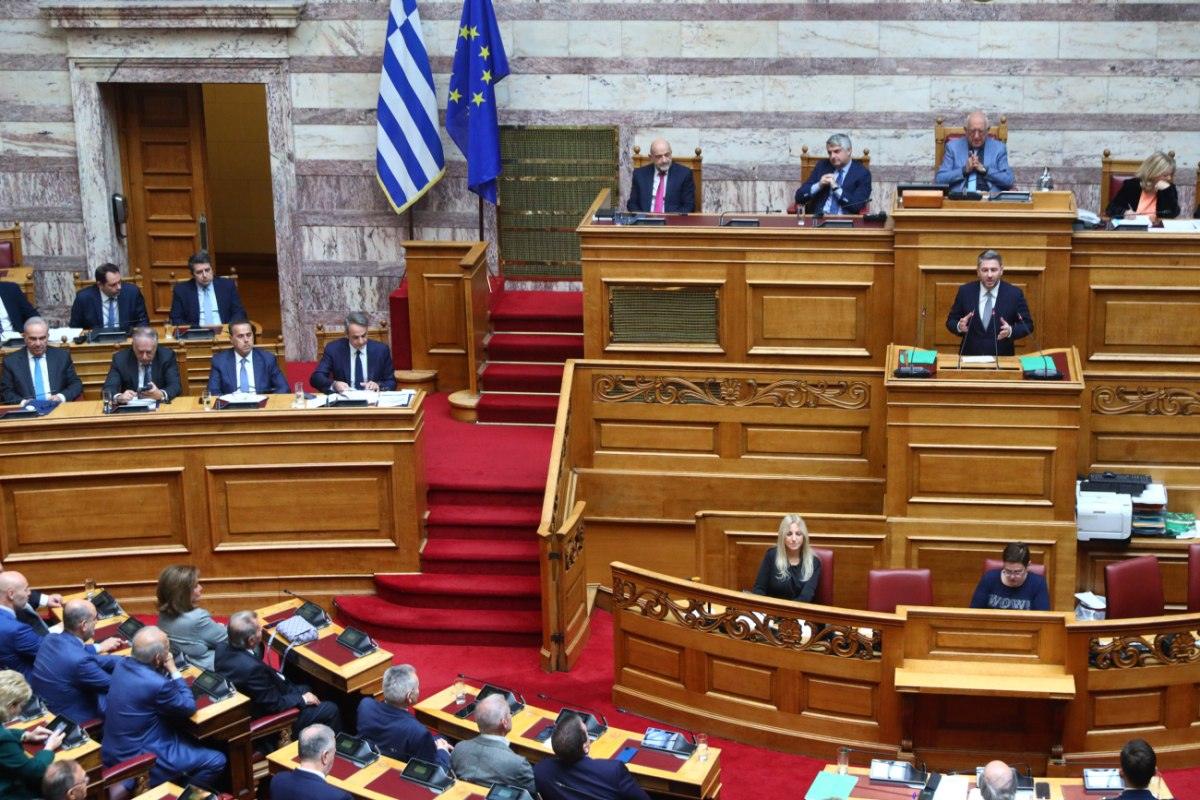Greek Prime Minister Kyriakos Mitsotakis on Tuesday said his government aims to transform the east Mediterranean country into a net exporter of electricity to the rest of Europe, speaking at the 27th UN Climate Change Conference (COP27).
In reference to host country of Egypt, he repeated that Athens is discussing with Cairo the construction of an underwater cable in the east Mediterranean to link the two countries’ grids, something he said will transport cheaper solar energy from North Africa to Europe.
The conference is taking place at the well-known Sinai Peninsula resort of Sharm El-Sheikh.
He also said national governments must continue to support their citizens in the face of the ongoing energy crisis and cost-of-living hikes.
He full address reads:
“We meet today, in Sharm El-Sheikh, during an acute energy crisis—sparked by Russia’s unprovoked war on Ukraine.
And today, I want to speak to you as a “radical realist.”
Radical because I deeply believe in the energy transition. It is imperative. Ιt is unavoidable. The energy transition is not just about mitigating risk. It is an opportunity. It is also a strategic necessity.
Low-carbon energy means energy security—this much is clear. No one can shut down our wind or our sun energy.
But this energy transition will also allow us to reconceptualize Greece’s economic model.
For decades, we have been a net energy importer.
Our trade balance and our competitiveness have suffered.
This is changing.
Our future competitiveness will be grounded on abundant wind and solar resources.
Greece is already a leader in renewable energy.
Almost half of our electricity today comes from wind, solar, and water.
We have more than 10 gigawatts of installed solar and wind power and we rank in the top ten countries of the world in terms of the penetration of wind and solar.
Just a month ago, we reached a major milestone when, for five hours on a sunny and windy day in October, solar and wind met 100 percent of our electricity needs.
Meanwhile, our coal consumption has fallen by almost 80 percent in less than 10 years.
The energy we consume today emits 30 percent less CO2 than it did in 2005.
And we are just getting started.
We have just voted our first ever climate law, committing to carbon neutrality by 2050. We want to double our renewable capacity by the end of the decade.
We want to be a net electricity exporter to the rest of Europe.
We want to help carry energy and hydrogen from North Africa and the Middle East to Europe.
We are discussing with Egypt about building a 3 GW cable to bring cheap solar electricity from North Africa to Europe.
We intend to be at the center of a new corridor that will redraw the map of energy in Europe.
But at the same time, we must also manage today’s crisis.
Without energy security there is no energy transition.
Like many other countries, we need to briefly increase our lignite production.
At the same time, we need to import more LNG.
And we are investing in our gas infrastructure in order to enhance our energy security and that of our neighbors.
And at the same time, we need to keep supporting our citizens in order to tackle the adverse consequences of a profound cost of living crisis.
Personally, I see no tension between safeguarding the present and investing in the future. Our people will not support us otherwise.
That is why I believe that we need radicalism as well as realism.
I believe this is the only way forward and this is my message to you today.”
